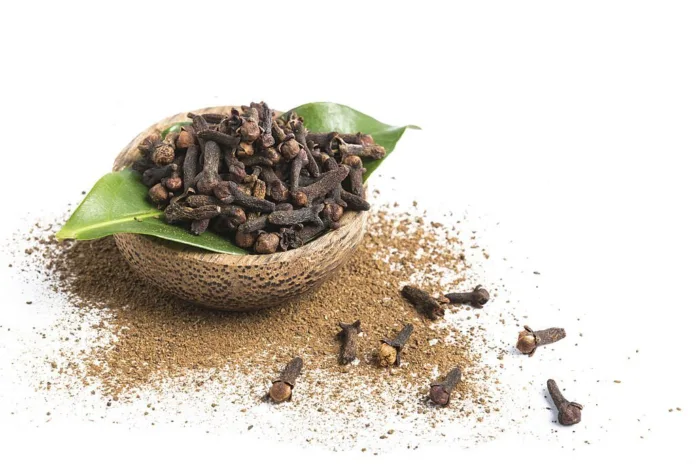Cloves are a small, aromatic spice that has been used for centuries for their medicinal properties. They are native to Indonesia, but are now grown in many tropical countries around the world. Cloves are a good source of vitamins and minerals, including manganese, vitamin K, and potassium. They also contain antioxidants, which can help protect your body against damage from free radicals.
There are many potential health benefits of eating cloves. Here are a few of the most well-known:

Reduced pain and inflammation: Cloves contain eugenol, a compound with analgesic and anti-inflammatory properties. This makes cloves a natural remedy for pain and inflammation, such as toothache, headache, and muscle pain.
Improved digestion: Cloves can help improve digestion by stimulating the production of digestive enzymes. They can also help relieve indigestion, gas, and bloating.
Boosted immune system: Cloves contain antioxidants that can help boost your immune system and protect you from infection. They can also help reduce the severity of colds and flu.
Lowered blood sugar levels: Cloves contain compounds that can help regulate blood sugar levels. This makes them a good choice for people with diabetes or prediabetes.
Reduced risk of cancer: Cloves contain antioxidants that can help protect your cells from damage that can lead to cancer. They have been shown to have anti-cancer properties against breast cancer, colon cancer, and lung cancer.
Improved oral health: Cloves have antibacterial and antiseptic properties that can help fight gum disease and tooth decay. They can also help freshen breath.
How to Eat Cloves
Cloves can be eaten whole, ground, or in the form of clove oil. They can be added to food, such as curries, stews, and desserts. They can also be used to make tea or infused in water.
If you are new to eating cloves, it is best to start with a small amount and gradually increase the amount as you become more accustomed to the taste. Cloves have a strong, pungent flavor that can be overpowering for some people.
Cloves Side Effects
Cloves are generally safe for most people to eat. However, some people may experience side effects such as nausea, vomiting, and diarrhea. If you experience any side effects after eating cloves, stop eating them and talk to your doctor.
Cloves should also be avoided by people with certain medical conditions, such as diabetes, high blood pressure, and heart disease. It is always best to talk to your doctor before adding cloves to your diet.
Conclusion
Cloves are a healthy and versatile spice that can be enjoyed in many different ways. They offer a variety of potential health benefits, including reduced pain and inflammation, improved digestion, boosted immune system, lowered blood sugar levels, reduced risk of cancer, and improved oral health. If you are looking for a natural way to improve your health, cloves may be a good option for you.




